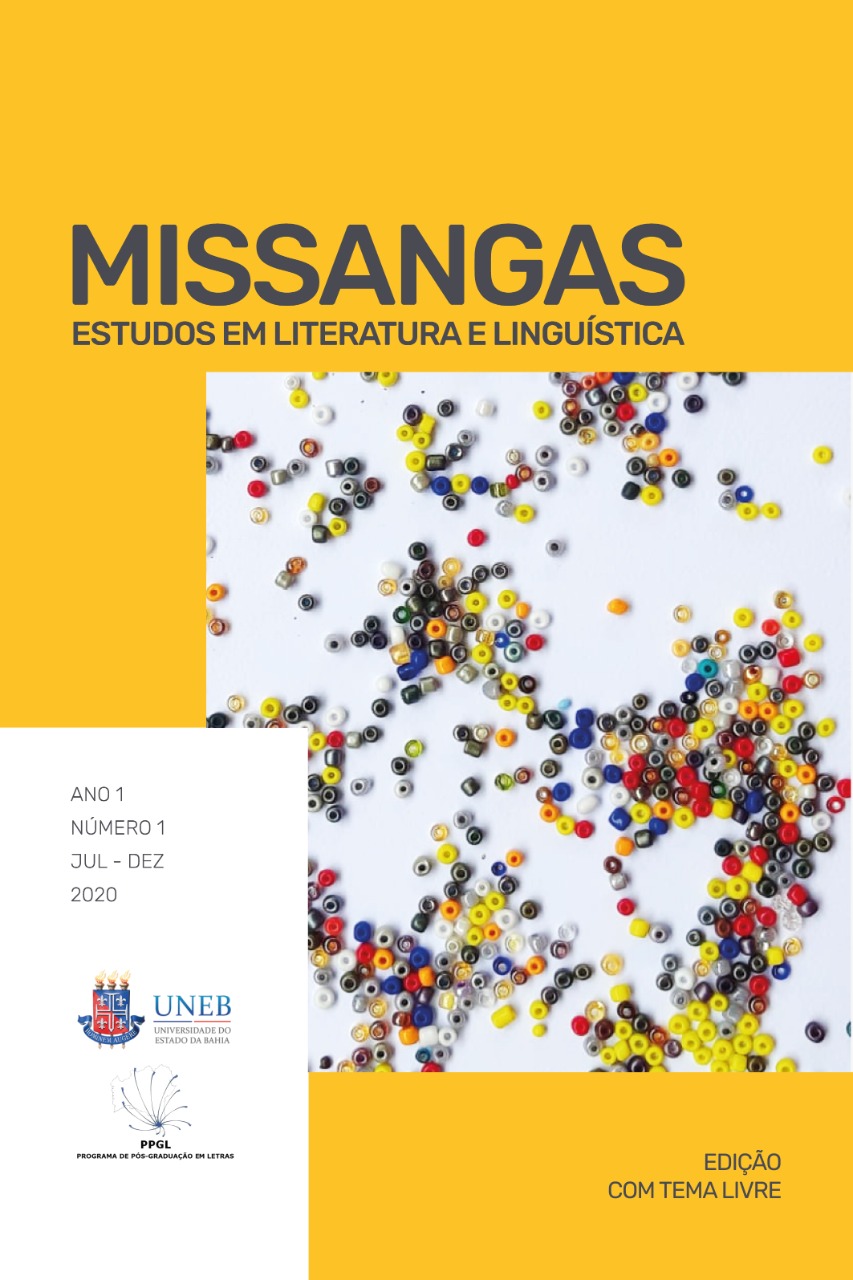ANÁLISE COMPARATIVA DA COOCORRÊNCIA DAS NOMINALIZAÇÕES EM -ÇÃO E EM -MENTO NO PORTUGUÊS BRASILEIRO E NO PORTUGUÊS EUROPEU
DOI:
https://doi.org/10.53500/msg.v1i1.11014Keywords:
Linguística de Corpus, Variação Linguística, Corpus do Português, Nominalizações em -ção e -mentoAbstract
This study is built upon the theoretical and methodological contributions of the studies
based on corpora (BIBER et al. 1998; McENERY; HARDIE, 2011) with special focus on studies
within linguistic variation (LABOV, 1972; 1973). The main objective of this work is to analyze
the occurrences of nominalizations in Portuguese with the use of the suffixes –ção and -mento
of the following pairs: Beneficiação/ Beneficiamento, Congelação/ Congelamento, Ordenação/
Ordenamento, Povoação/ Povoamento and Pronunciação/ Pronunciamento in Corpus do Português
(DAVIES; FERREIRA 2006). The main goal is to determine whether the pairs have the same truth
value or if they point to different semantic values, as well as if they display signs of variation and/
or linguistic change via the analysis of Collocates, Concordance lines and diachronic distribution
in the distal periods of the corpus. The analysis showed that not all pairs of nominalizations have
the same truth value. In some cases, they were more commonly used to refer to different meanings
of the verb, or for a metaphorical sense and there was a clear case of linguistic change in one
of the pairs discussed.
Downloads
References
BIBER, D. Corpus Linguistics and the Study of English Grammar. Indonesian Journal of English Language Teaching, v. 1, n. 1, p. 1-22, 2005.
BIBER, D.; CONRAD, S.; REPPEN, R. Corpus Linguistics: Investigating Language Structure and Use. Cambridge: Cambridge University Press, 1998.
CANTOS-GÓMEZ, P.; ALMELA-SÁNCHEZ, M. (eds.). Lexical Collocation Analysis: Advances and Aplications. Cham: Springer, 2018.
COOK, R. T. What Is a Truth Value and How Mare Are There? In: Studia Logica: An International Journal for Symbolic Logic, Vol. 92, No. 2, TruthValues. Part II, 2009 pp. 183-201
DE HAAN, P. Postmodifying clauses in the English noun phrase: a corpus-based study. Amsterdam: Rodopi, 1989.
DAVIES, M.; FERREIRA, M. Corpus do Português: 45 million words, 1300s-1900s. 2006. Disponível em: <https://www.corpusdoportugues.org>. Acesso em: 15 ago. 2020.
HUNSTON, S.; FRANCIS, G. Pattern Grammar: A corpus-driven approach to the lexical grammar of English. Amsterdam; Philadelphia: John Benjamins, 2000.
LABOV, W. Sociolinguistic patterns. Philadelphia: University of Pennsylvania Press, 1972.
LABOV, W. The boundaries of words and their meanings. In: BAILEY, C. J. N., SHUY, R. W. (eds.). New ways of analysing variation in English. Washington: Georgetown University Press, 1973. p. 340-373.
McENERY, T.; HARDIE, A. Corpus Linguistics: Method, Theory and Practice. New York: Cambridge University Press, 2011.
RÖMER, U. Progressives, Patterns, Pedagogy: A corpus-driven approach to English progressive forms, functions, contexts and didactics. Amsterdam/Philadelphia: John Benjamins, 2005.
TARALLO, F. A Pesquisa Sociolinguística. São Paulo: Ática, 1986.
YANG, B.; LI, W. (eds.). Corpus-based Approaches to Grammar, Media and Health Discourses: Systemic Functional and Other Perspectives. Cham: Springer, 2020.
Downloads
Published
Issue
Section
License
Os artigos publicados na revista Missangas são de inteira responsabilidade de seus autores e não refletem, necessariamente, o pensamento dos editores.


